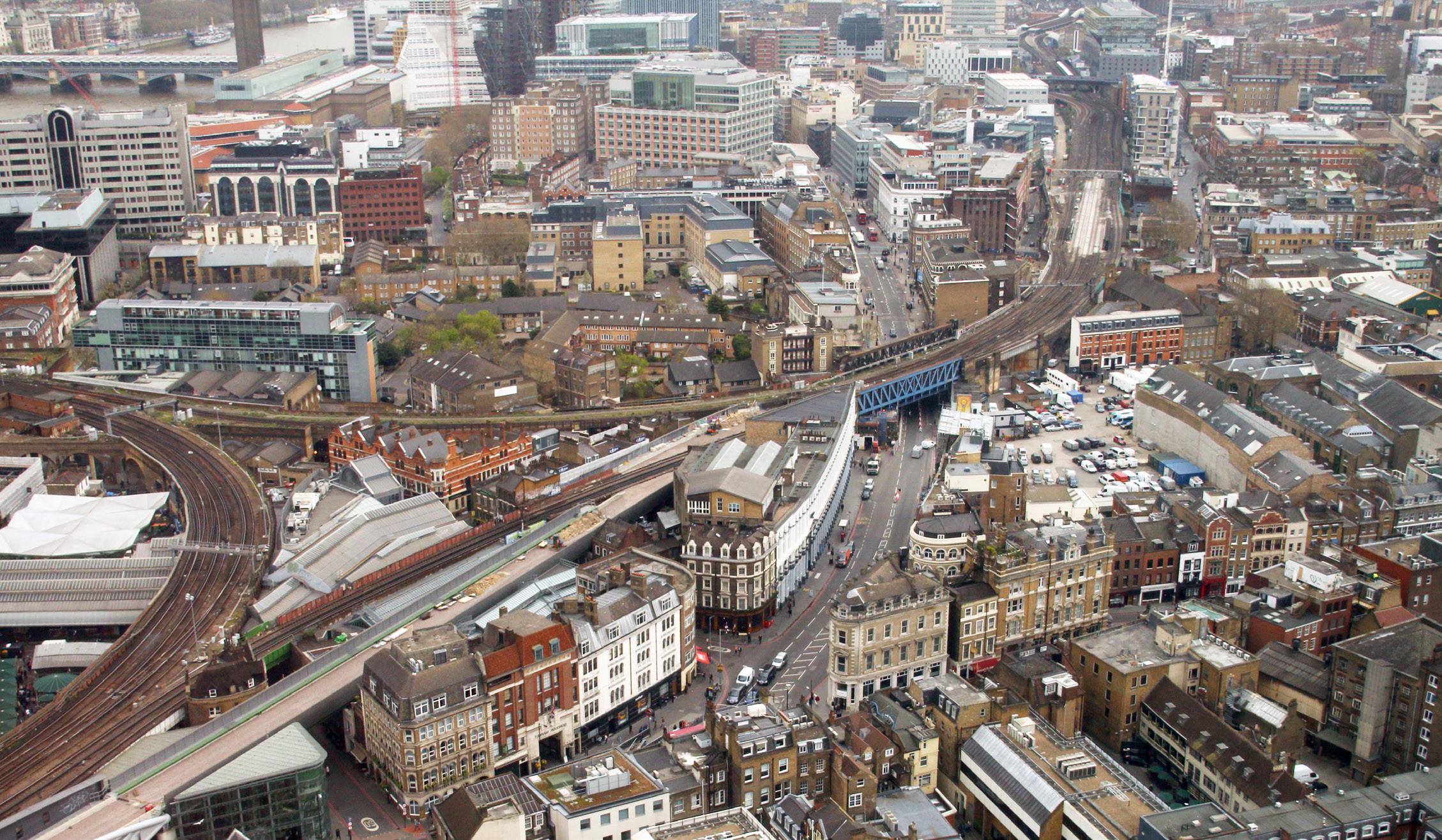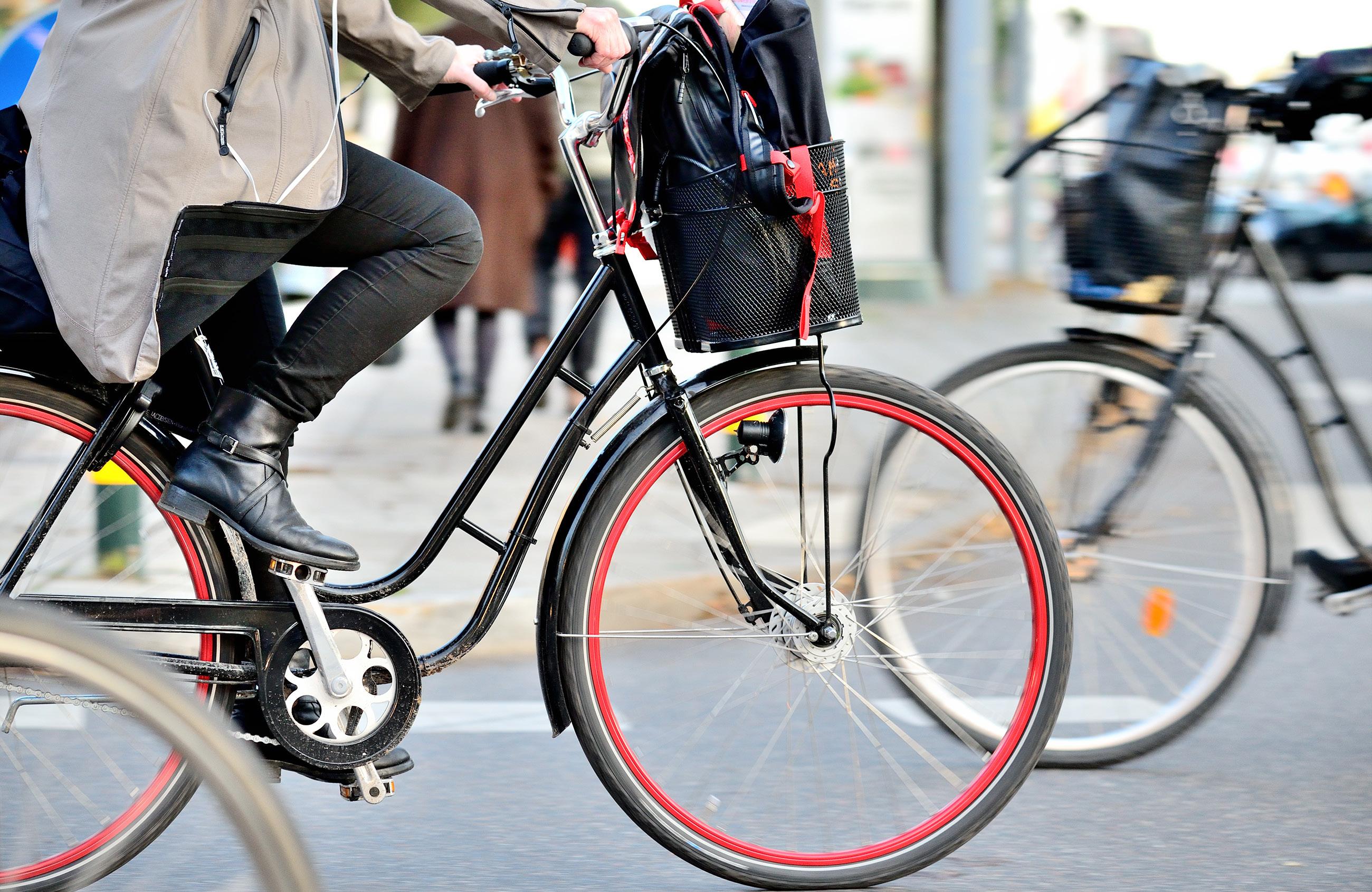
8 minute read
GLOBAL CHALLENGES MEET LOCAL SOLUTIONS
INTERVIEW WITH METE COBAN
Interview conducted by Anthony Silberfeld on February 16th, 2022 with Mete Coban, councilor for Stoke Newington in the London Borough of Hackney. INTRO: Mete Coban is an elected councilor for the Stoke Newington district in the London Borough of Hackney. He serves as the borough’s cabinet member for energy, waste, transport and the public realm. Coban is also the founder of My Life My Say, a nonpartisan charity that encourages democratic participation among young people. Reflecting his wideranging interests and activities, he talks in this interview about the ways in which climate change is sparking innovation on the local level and his efforts to mobilize the next generation for political engagement. QUESTION: You represent a fascinating neighborhood in one of the world’s most dynamic cities. What makes Hackney so special? COBAN: Hackney is a very interesting place. I always refer to Hackney as the world-in-oneborough because it’s probably the most diverse municipality in the whole of Europe. It’s got a huge Orthodox Jewish community, Turkish and Kurdish communities, and a huge African Caribbean community. Hackney used to be one of the worst places to live in the United Kingdom. It was actually ranked as the worst place in 2006 out of 434 local authorities. When my family came from Cyprus, Hackney had one of the highest rates of crime in the UK and one of the highest rates of poverty. This was particularly so among children, with 36% of children in Hackney living under the
Advertisement
poverty line. Fast forward 16 years, Hackney has massively transformed. We’ve got Tech City, which is basically where all the tech companies and fintech companies are based. And we’ve now got the best schools because we had a big investment after all the schools were failing. In a nutshell, what I’m trying to say is it’s massively changed. It’s gone through major transformation in terms of the dynamics of the economy and its people. QUESTION: That is quite a leap in a relatively short time. What were the factors that drove and sustained this evolution?
COBAN: We got here because of a number of factors. The first is the 2012 Summer Olympics, which were held in the east London area and cut across four London boroughs, one of them being Hackney. That brought a lot of investment. The other thing that massively transformed the area was the government at the time. The local council went into administration, so the government intervened and that brought waves of investment. Since Hackney is on the cusp of the City of London [London’s financial district], and the City was too expensive for this growing world of tech, a lot of these companies coalesced around Hackney. You had this new community that was being formed and bringing nightlife and businesses. So, Hackney has become this very trendy place to live.
QUESTION: Rapid growth often comes with significant challenges. What issues are residents confronting? COBAN: The top three concerns they have are a costof-living crisis, a housing crisis in terms of more than 50% of our housing stock being public housing, and then the third issue is sustainable transport. 87% of people in Hackney either walk, take public transport or cycle. It has the lowest car ownership levels in London. People take the environment very seriously in Hackney. QUESTION: Public interest in Hackney in environmental issues seems to have created space for the local government to innovate. Can you tell us about any novel approaches you’ve taken on these issues?
COBAN: One problem that we have in Hackney is really bad air pollution, one of the highest levels in London. Hackney is a very centrally located borough. It’s surrounded by north London, east London and central London,

and people are driving through Hackney to get to where they need to go. Navigation apps have made a lot of residential roads, which weren’t designed for heavy traffic, more accessible because the apps offer them as shortcuts. We’ve seen 40 million miles more driven on residential roads in the last 10 years, which is obviously a huge problem. One of the things that we’ve been experimenting with recently in Hackney, and this is part of my role, is low-traffic neighborhood schemes that are designed specifically to reduce the amount of external traffic using Hackney as a through route. We know that 40% of traffic that comes through Hackney never stops in Hackney, so it has no benefit to our economy. We’ve now put 70% of our roads within low-traffic neighborhood schemes, which basically cuts access for cars. If you drive through, you’ll pay a fine. It is designed to encourage more people to walk, cycle, take public transport, but then also tackle toxic air pollution and to protect the lungs of our children. QUESTION: Do your constituents see that politics can deliver results and improve their quality of life? COBAN: They very much notice it. The most recent scheme I launched started on a major road, which has more than 10,000 cars driving on it every day minimum sometimes more than 15,000 cars. We’ve now introduced a policy where there are no through routes between 7 a.m. and 7 p.m., meaning that if you are in a car, it’s very noticeable. If you’re driving through… it’s very noticeable. It’s a big political issue. It takes a lot of bravery to bring it in because you know undoubtedly that you’re going to get a lot of people who are going to push back, whether it’s people who are in the trades, or people who need to drive. Anyone who owns a car understandably is going to push back because they’ve invested in a car, and they don’t want to spend more time in traffic. QUESTION: Are there other neighborhoods or boroughs that look at what Hackney has done and try to replicate it? COBAN: Yeah, we’re the beacon of London. We’ve been leading the way in this, and we’re ranked number one in terms of what we call healthy streets. QUESTION: Many politicians say they prefer serving in local government because they can see tangible results of their work. How do you view your role? COBAN: I got into being a councilor because I took the view from a very young age that I didn’t want to complain and not be part of the solution. It was a clear choice for me. Either I was going to stop complaining, get on with my life, or I was going to try to be involved and try to make a difference for my community. Being a councilor is part of that. But I also wanted to go one step further, and I wanted to make sure that we can empower people who had similar experiences to me when I was growing up. You often felt neglected, and you often felt powerless, and you often felt that you didn’t have a voice. That’s why we established My Life My Say. We knew that lots of young people across the country often felt politicians didn’t take them seriously when it came to policies, and didn’t consider their voices when it came to some of the biggest issues of the day. QUESTION: Is it a heavy lift to convince young people to engage in politics? COBAN: I think young people do care about issues. I think, of course, they care about whether they’ve got a decent roof over their shoulders. They care about whether they’ve got a job that gives them basic respect and dignity. The problem is whether they see traditional forms of politics as a vehicle to address the issues that they care about. And partly the reason why they don’t is because we’re not educated about how democracy works in the UK. Another problem is that our politicians are not representative of society. There aren’t a lot of people who look and sound like me who are in politics. When you look at the number of women in politics, it’s still very low. I mean it’s ridiculous. And when you look at the number of people from LGBTQ+ backgrounds, or people with disabilities, or minorities, or people of different classes, their representation is still low. I think that’s a big barrier. QUESTION: What do you think the UK would look like if parliament were more
representative of the population? METE COBAN: I think if the parliament was much more representative, we wouldn’t be in such a mess that we are now, where we haven’t had any legislation on some of the biggest challenges that we face around the education system or the health system, the National Health Service. We take the NHS very seriously, but it’s on the brink of collapse because the people at the top don’t understand how it works. They’ve never used it. They’ve never needed it. Nor do they understand the importance of it. We haven’t had any major reform or legislation in this country for decades. We haven’t had any serious investment in terms of infrastructure. We’re not serious about climate change. You know, we have a huge issue around energy prices right now, but there’s no plan to retrofit homes in this country. QUESTION: It sounds like the problems you’re currently facing are insurmountable in the current political climate. Do you remain optimistic, or are we doomed?
COBAN: We’re not doomed yet, and the reason why we’re not doomed is that sometimes you need big issues to really wake people up. What I’ve seen over the past few years, particularly when you look at the Black Lives Matter movement, when you look at the youth movement around climate change, you sometimes need bad things to happen to wake up a lot of people to understand what we had and also to really understand how to get us to think about what the future of the world could be. There’s a whole lot of people who are now very motivated to make change more than ever. Even through my own work, through My Life My Say, for example, I see it. There’s much more demand for the type of work we do. There’s much more interest in the type of work we do. Generally speaking, more people are now motivated to make change. What we need to do now is really tap into that energy and really channel it in the right way to build a system that is much more inclusive, and create a different type of world that we can live in.
I think there’s an appetite for change. If we don’t capitalize on this moment, then it’ll be such a missed opportunity.


